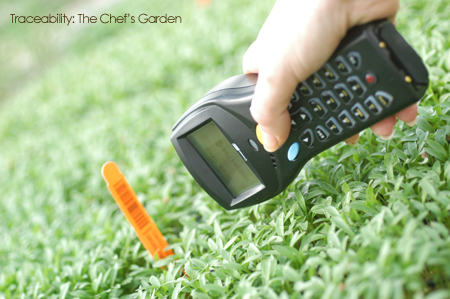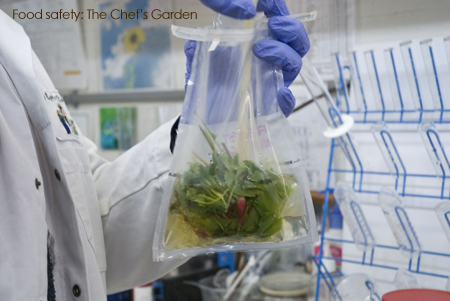Never before in the history of America has great food safety been more critical. I think that many times establishments don't realize the importance of food safety until after it's too late, but it's something that's been a huge priority for us over the last 15 years. E. coli didn't just appear in the last 20 years that we've been hearing about it; it's been here since the beginning of time. It's only our ability to defend against it that has changed.

I went down to Mexico to meet some of the guys from the farm and their families one year. We were sitting in a restaurant when a pickup truck pulled up out front and three guys took six dressed out steers from the bed of the truck. They just threw them over their shoulder, walked right through the restaurant and hung them on a rack right out in the open within about 20 feet of our table; in fact, one steer actually brushed up against the back of my shirt as the guys walked through.
I asked one of the guys if they were going to put those in refrigeration, but he said, “Nah…that'll ruin their flavor and they'll be gone by this weekend.” Needless to say, as I watched the flies land on them, it did not make me very confident in eating my dinner. Now, I'm certainly not recommending that we do this, but the reality is that they have bacteria buildup in their systems from drinking well and cistern water in Mexico and seem to tolerate the E. coli much better than us north of the border.
One of the main things that really changed the deal in the United States was when we introduced chlorine into the city water to kill bacteria that could harm us. Did it work? You bet it did - marvelously. Unfortunately, it killed both bad and good bacteria, so we don't have the ability to defend against the bad bacteria. That’s why I'm not so worried about making sure I get all the soil off the tomatoes or peppers fresh from the field; in fact, I’ve been known to say that we should eat more dirt. I also try and avoid chlorinated water at all costs, so that I don't kill the good bacteria within my system.
It’s kind of a vicious cycle; the United States is one of the most sterile and clean environments in the world, yet we’re the most vulnerable. Isn’t that odd? It’s a conundrum, and I don’t see it getting better in the near future. The most recent food safety scare over in Germany makes us all too aware of how critical food safety is, particularly in the restaurant business. It has become increasingly important for us to monitor food safety at every single step of the growing and packaging process to be able to provide a safe product.

We test for food-borne illnesses right here on the farm, and every product we send out has a lot number that tells us where the seed came from, who planted it, where they planted, when it was packed and who ordered it. This system allows us to have total transparency and traceability, and the ability to notify a chef if there is a problem.
Food safety concerns are not going to go away, so we will continue to have to stay focused on cleanliness and safe handling long into the future. My dad has a saying that is it's easier to stay out than get out of trouble, so food safety is and remains a critical consideration for us on the farm.